Gracias a Dios: Language Barriers and Solidarity
BY ERIN CANNING | February 3, 2017
“¿No estoy aquí yo, que soy tu madre?” Am I not here, who am your mother?
There is a state of humble simplicity and beautiful chaos in which Dolores Mission seems to perpetually exist. A strong, moving spirit travels within and throughout our community at all hours. The faithful dedication to God and God’s will are constantly present – “Estoy bien, gracias a Dios… Los programas educativos se crecen, gracias a dios …” – everything is reflected back to the Creator in meek thanksgiving.
On top of that dedication is a fierce, unshakeable love for Our Lady, Mary the Mother of God. By far the strongest and most moving devotion to Mary is the community’s trust in Our Lady of Guadalupe. Even after 8 years of Catholic school, I struggle to conceptualize and grow in my relationship with Mary; but when you hear how much hope the community puts in their relationship with their Mother or see how deep their conviction is in her intercession, it’s almost impossible not to seek a deeper relationship with Mary – or, at the very least, it’s difficult not to get wrapped up in the mysterious yet comforting mantle of her motherly love.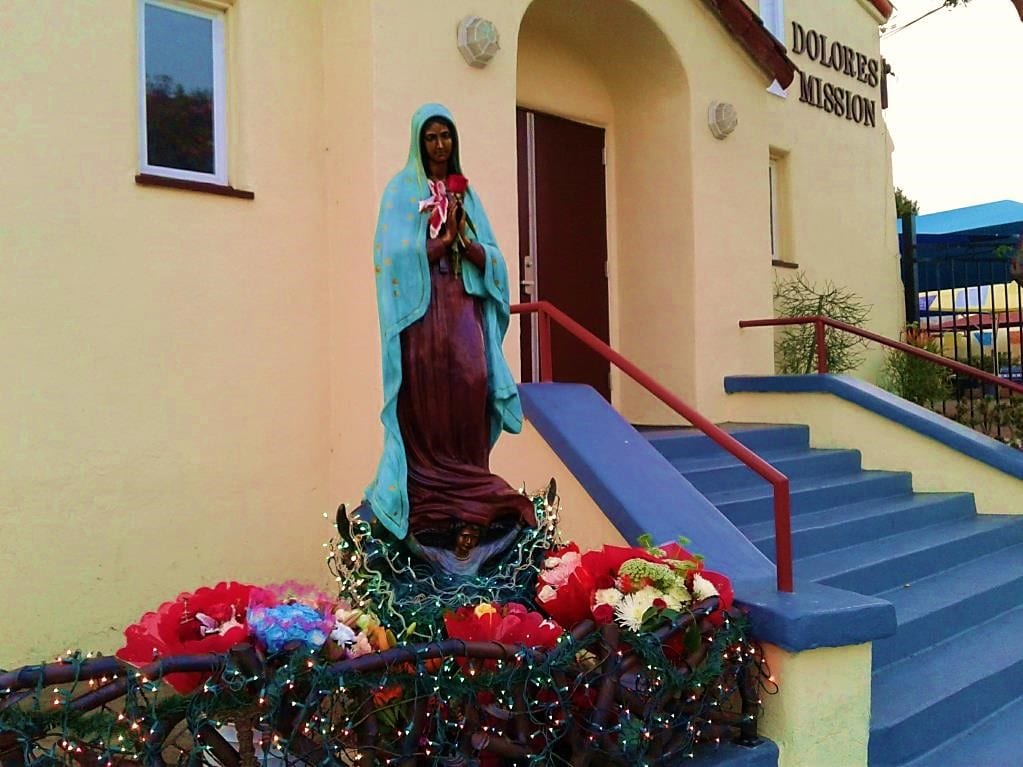
***
I sat in a pew, surrounded by probably 30 or 40 other people from the community. The rosary we were praying that day was part of a Novena, a 9-day devotional prayer, to Our Lady of Guadalupe. Being a Latinx parish, we prayed the rosary out loud in Spanish. Despite my 9+ years studying Spanish, I was struggling to keep up with the rapid-fire Padre Nuestro’s and Dios Te Salve Maria’s; and don’t even ask me what prayers they said in between each decade.
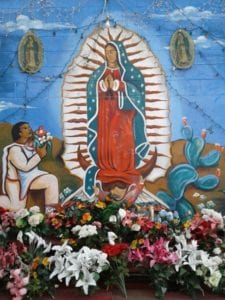 I felt like a fraud; like a failure; I was extremely frustrated that I couldn’t keep up, that I couldn’t fully understand. And it was driving me crazy that, although everyone was saying the same prayers, it seemed every other person had their own slight variation to the prayer. Some people prayed rhythmically; some added an extra “los” or “tú”; some prayed like auctioneers; and some were just straight-up loud. Where was the flow, the continuity, the order?!
I felt like a fraud; like a failure; I was extremely frustrated that I couldn’t keep up, that I couldn’t fully understand. And it was driving me crazy that, although everyone was saying the same prayers, it seemed every other person had their own slight variation to the prayer. Some people prayed rhythmically; some added an extra “los” or “tú”; some prayed like auctioneers; and some were just straight-up loud. Where was the flow, the continuity, the order?!
All these thoughts and feelings took up so much room in my head that I couldn’t focus on my poorly recited prayers anymore. My frustration quickly turned into feelings of inadequacy: I thought I knew Spanish better than this… Why can’t I understand what they’re saying?… I should have spent more time learning these prayers…Mary, pray for me…
Suddenly I realized that this frustrating moment was in fact presenting me with the opportunity to be in solidarity with the people of this community (albeit a small form of solidarity). Many of these people come from migrant families, or are immigrants themselves. If English is their second language, I thought, how many times have they been through this same thing? How much more frustrating and unfavorable are language barriers for them than they are for me? Hearing English on the radio and not quite getting it; paying close attention at a parent-teacher conference but not quite understanding what the teacher is saying; listening to instructions from their boss but not being able to follow up.
Mary heard my prayers of frustration: she helped me realize that being clueless during the rosary was an extremely small burden that I could (and did) happily accept. And the incongruent, choppy rhythm of 18 versions of Dios Te Salve Maria being recited all at once ceased to bother me as well. How beautiful that everyone was so confident in this simple prayer from their specific childhood that it poured out directly from their hearts. They understood that prayer doesn’t need to be perfect in order to be prayer (a truth I often struggle with). So everyone was fine with everyone else reciting their own version at their own pace.
I sat peacefully, humbly mumbling my way through the rest of the rosary. This vulnerability brought me a little bit closer to a struggle many of my brothers and sisters face, both here and across the country. And Mary helped me realize that I’m not the one in control – gracias a Dios.
Erin Canning is a Jesuit Volunteer in Los Angeles, serving as a Youth Minister at Dolores Mission Parish. She’s a graduate of St. Louis University in Biomedical Engineering and hails from the Chicago area.

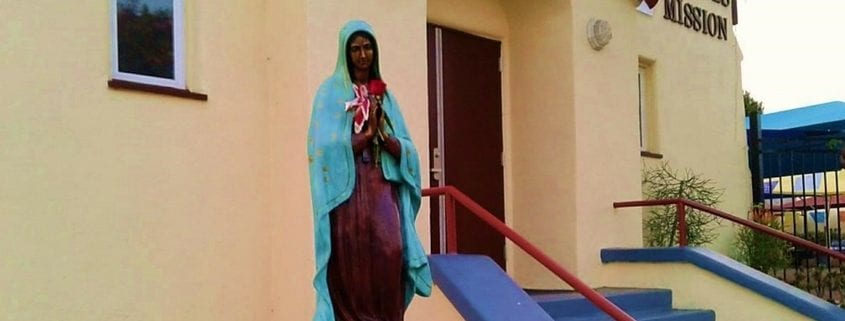
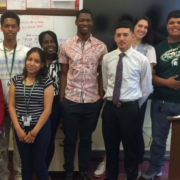

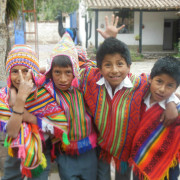

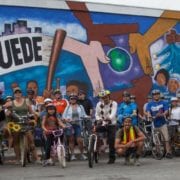
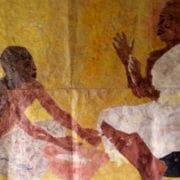

Dolores Mission is a fine initiative.